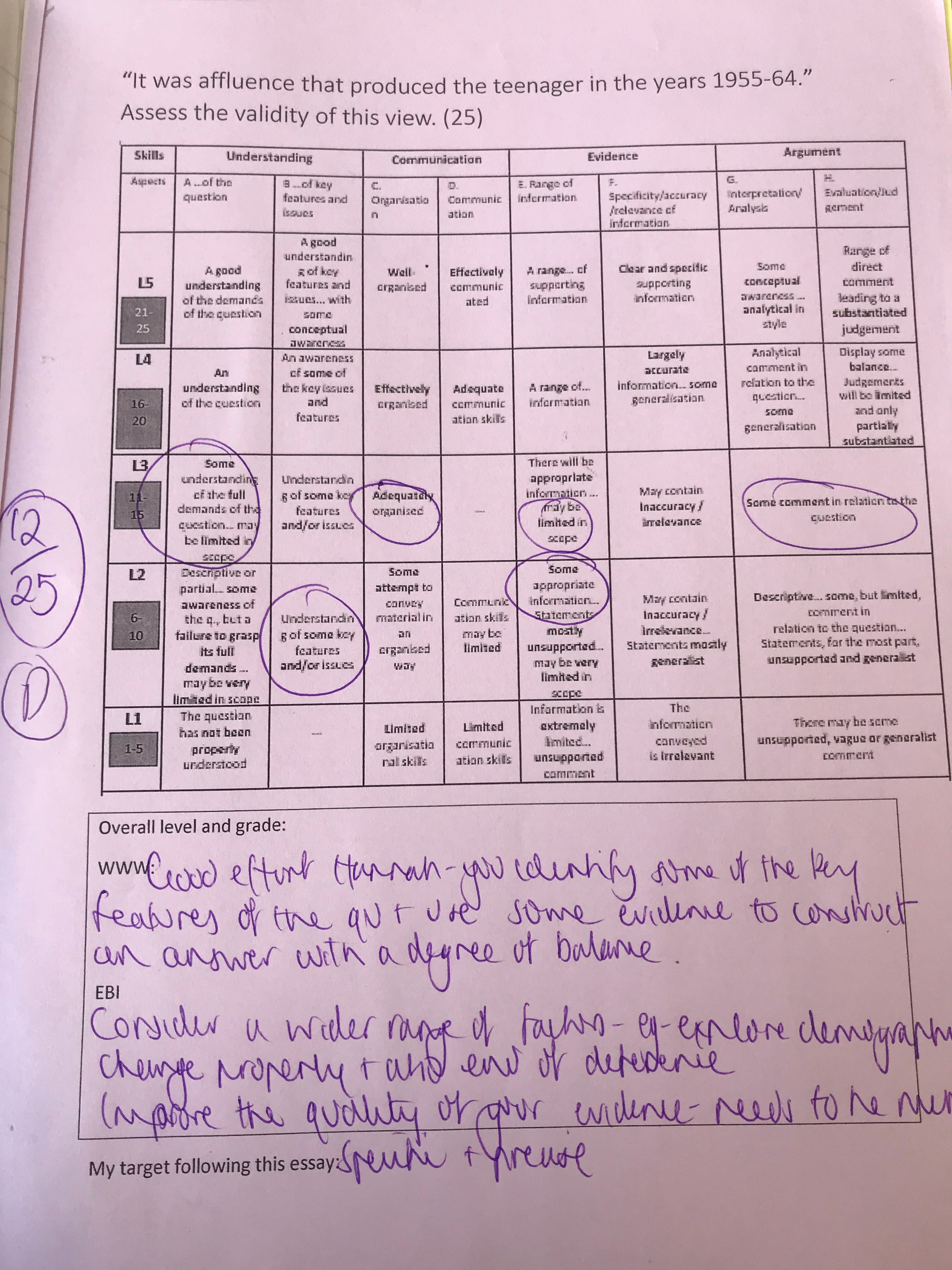History
We would expect students to have met the expectations for entry to 6th form and to have a grade 5 in History. We welcome conversations with individual students about their suitability for the course.
Why choose History at A level?
- Enjoyment. It’s fascinating to learn about things that are ‘foreign’ or different from our own lives. Recognising what we share with people in the past, while simultaneously thinking about how profoundly their lives differed from our own, is intriguing and rewarding.
- Understanding humanity and the world we live in. Everyone is strongly influenced by his or her understanding of history; a deeper knowledge of history will enable you to put the contemporary world, people’s thoughts and actions, into context. You should study history if you wish to learn how and why the world and its peoples came to be as there are today.
- Essential skills. History provides us with the skills to analyse and explain issues in the past, present and future and communicate our ideas clearly; it helps us think and write properly (the bits machines can’t do in a service economy). Any career that rewards clear thinking, good writing, articulate speaking and the ability to ask and answer complicated questions about how the world works will be open to a History student.
.jpg)
.jpg)
How is A level History viewed by universities?
- The Russell Group of Universities (russellgroup.org.uk) offer advice on which A level subjects open doors to more degrees and more professions than others; they call them ‘facilitating subjects’. History is a facilitating subject.
How does A level History affect my life chances?
- Positively History embeds the thinking and writing skills that are critical in a wide range of professions, from law to business to medicine and everything in-between. There’s no substitute for being able to evaluate evidence and make clear, concise and convincing arguments.
What do we study in History?
- Tsarist and Communist Russia, 1855–1964 (new for 2024)
- The Making of Modern Britain, 1951-2007
|
Year 12 |
Year 13 |
|
The Making of Modern Britain 1979-2007
|
|
The Soviet Union 1917–1964
|
What exam board do we use? AQA (www.aqa.org.uk/subjects/history/as-and-a-level)
How will A-level History be assessed? A-level History is a combination of exams and coursework:
|
Tsarist and Communist Russia, 1855–1964 |
The Making of Modern Britain 1951-2007 |
|
2 hour 30 minute written exam
40% of final grade |
2 hour 30 minute written exam
40% of final grade |
|
The final 20% is historical enquiry (coursework) |
Chosen from subject material decided by each school (separate to the examined subject material) |

Interested in finding out more?
Subject content. To understand what you would study in A level History at the J6th it would be a great idea to read the AQA subject content descriptions. Click here for Modern Britain and click here for Tsarist and Communist Russia, 1855–1964 (new link!) https://www.aqa.org.uk/subjects/history/as-and-a-level/history-7041-7042/subject-content/1h-tsarist-and-communist-russia,- Example feedback. A couple of examples of feedback. The first one is in response to the attached Y12 example question whilst the second is from Y13.
If you have any further questions regarding A-level History at Beverley J6 please get in touch:
Miss Brownell - Head of History, BHS s.brownell@beverleyhigh.net
Miss Hughes - Head of History, BGS g.hughes@beverleygrammar.co.uk
